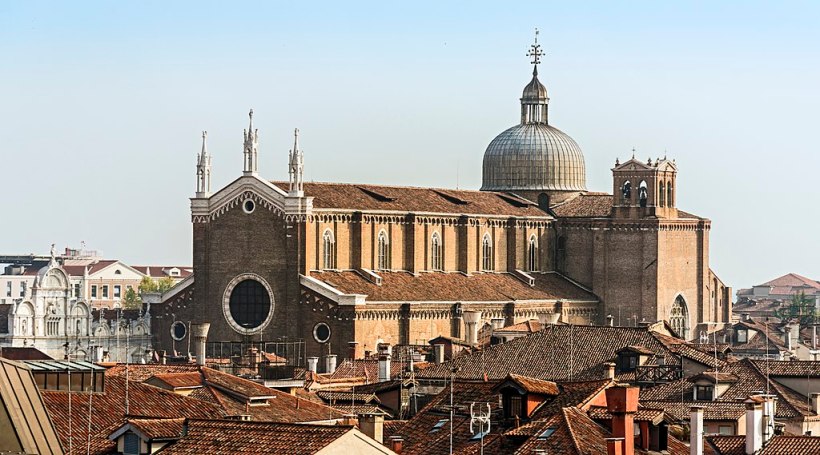
Humble yourself like a child. Look around you for good people, not partisan allies. When we serve Christ, everyone striving for honesty and goodness is an ally. (summary of today’s gospel reading at Holy Mass)
One of the things I have studied in some depth is: 19th-century American life. In the last part of the eighteenth century, all of the thirteen colonies ultimately managed to agree on a structure for a federalized republic of states, each with its own proper internal laws and governments. But as the decades of the nineteenth century wore on, it became increasingly difficult for northerners and southerners to communicate in any kind of constructive manner.
They did not have alternative cable-news channels. But they did have alternative versions of what each side saw as evident facts. And the two sides had different absolute loyalties, to two different cadres of political leaders. The different groups of leaders ultimately accused each other of the kind of treachery that only war can settle.
I don’t mean to be alarmist. But it occurred to me this morning that I may get shot.
I have been a zealous pro-life priest since the day I was ordained, and I was a zealous pro-life seminarian for years before that. During the 2016 campaign, I made no secret of the fact that I thought Hillary Clinton was a fundamentally dishonest politician who rose to prominence solely because of her long-time insider connections. In other words, she became a presidential nominee through pure cronyism, not by some feminist triumph.
But, also back in 2016, I made no secret of the fact that I agreed with Armando Fuentes Aguirre. He wrote in a Mexico-City newspaper that Donald Trump’s nomination for president of the USA was something for which the human race ought to feel ashamed.
I know perfectly well that there are semi-rational individuals who have, can, and will frequent our parish buildings, who already have in their minds justifications for doing me violence.
We Catholics have a head start in understanding the danger that we face as a nation right now. The reality of a President Donald Trump has divided our Catholic parishes and dioceses in ways that most of us never could have imagined six years ago. Both our parishes here were growing bilingual families, in the process of building up trust and friendship—back in 2015. But in 2016 a dark cloud of distrust descended. The process of growth in friendship has stood at a standstill ever since.
Now, don’t get me wrong. There’s plenty of hope for the long-term future. Because the young people all communicate perfectly well with each other. We have plenty of Mexican-American girls with white boyfriends, and plenty of Mexican-American men with black wives. Not to mention the intermarriages with Filipinos, Vietnamese, and other Latinos. I have baptized a lot of beautiful cappuccino babies.
But these noble young family-makers are powerless to put the brakes on a runaway train of political antagonism. We need to pray extremely hard. May we Americans find a way through the mess that we have made for ourselves, without more violence. Please, God: help us do so.


 He thought he had enjoyed his money thoroughly. Turns out he stewarded it very poorly. He actually owed some of it to the poor man Lazarus. And Lazarus didn’t ask much; he would have been happy with the scraps that fell from the table. But the rich man loved his sumptuous lifestyle so much that he did not even know that Lazarus existed.
He thought he had enjoyed his money thoroughly. Turns out he stewarded it very poorly. He actually owed some of it to the poor man Lazarus. And Lazarus didn’t ask much; he would have been happy with the scraps that fell from the table. But the rich man loved his sumptuous lifestyle so much that he did not even know that Lazarus existed.

 Savior.
Savior. Nonetheless, the reputation of the Catholic clergy lies in an utter shambles. So catastrophically damaged that most people find it difficult to imagine that they should go seeking their Savior in a Catholic church.
Nonetheless, the reputation of the Catholic clergy lies in an utter shambles. So catastrophically damaged that most people find it difficult to imagine that they should go seeking their Savior in a Catholic church.
 Most gospel commentators agree: Of all the Lord Jesus’ parables, the
Most gospel commentators agree: Of all the Lord Jesus’ parables, the 
















 I don’t mean that in a theoretical sense. I mean: I literally would not know what to say while standing at the altar, to bring about the consecration. I know what to say because I read the words that Holy Mother Church prescribes, in the Missal.
I don’t mean that in a theoretical sense. I mean: I literally would not know what to say while standing at the altar, to bring about the consecration. I know what to say because I read the words that Holy Mother Church prescribes, in the Missal.